Jeremiah and Doubt
why normalizing doubt only makes God more trustworthy
O Lord, you have deceived me,
and I was deceived;
you are stronger than I,
and you have prevailed.
I have become a laughingstock all the day;
everyone mocks me.Jeremiah 20:7
One of the most sure things in life is that at some point, we will have an excruciating encounter with suffering and pain. We all carry it. As I nurse I swim in those waters of suffering every day. I thought it may get easier as I go along. It doesn’t. During nursing school is when it started, I had many profound crises of faith, including doubt in the existence of God all together. I was also a pastor of a congregation during this time of doubt,1 so you can imagine that these questions weren’t simply theoretical. They impacted me, my family, and the people I love at my church. I tried to be open in ways I could about this, but I was also constantly doubting my doubt. My doubt was never a simple idea to be communicated, or a place I plant my flag. It was a journey.
And the doubt wasn’t just from seeing suffering patients or the hard situations I entered into with my congregation. It wasn’t just my nursing life, but crises after crises in my family that finally made me question the whole Jesus story all together.
Doubt like this isn’t always welcomed in the church. At least it is not comfortable, because of misuse of different Scriptures, like James 1:6-8: “…the one who doubts is double minded…” (more on this text later).
Christian or not, doubt is not comfortable for most people. Certainty definitely is an easier road to travel down. I have found the majority of people to deal with doubt due to it being uncomfortable in one of two ways.
To downplay the suffering that leads to doubt, so that the doubt doesn’t occur.
Often this is to protect people in power like politicians, e.g. downplaying harm done to women in order to squash doubt in themselves.
It takes away the voice of victims in order to live in a world that plays by their rules, understanding, and certainty, where they don’t have to doubt themselves, systems, or their understanding of God.
To downplay the doubt, even though they understand the reality of their suffering, because they believe in a God who will be disappointed, or worse, with them for doubting or they are afraid of doubting those in power.
Often these people play into the first way to deal with doubt, usually with well meaning motives.
What if the Scriptures actually shows examples of healthy ways to doubt?
What I see in someone like Jeremiah, for example, is someone who doesn’t avoid the difficulties of suffering, doesn’t downplay doubt, but knows that he must enter into doubting God in order to truly trust God. The very thing we think is leading us further from God may be the very thing that draws us to him.
Because Jeremiah was no stranger to suffering, and subsequent doubt in God.
According to Jewish scholar Dalit Rom-Shiloni, Jeremiah was the only one among the prophets to have suffered as many conflicts has he had with the people of his hometown, and also the only prophet to have as many debates as he did with those in authority.
So he knew relational suffering, and often that can be the worst suffering of all.
He knew what it was to be outcasted, to be set aside by those in trusted authority.
In fact, Jeremiah is often termed the “weeping prophet”. He was one of the main prophets that was heralding the coming destruction of his people. He knew collective suffering.
The book of Lamentations in Scriptures is often popularly attributed to him as well. That book has been a source of healing that gives space for Christians to cry their doubt and distress to God. Just as Jesus was calling his people to repent from their nationalistic violence so to be saved from the destruction of the Temple in 70 AD (Matthew 24), and offering a different way to promote revolution, so Jeremiah is weeping because he sees the coming destruction, and offering a path of repentance and trust in YHWH, that his people are just not taking.
This weeping prophet shows us a beautiful way to move through doubt. It is not to rush through it as quickly as we can so we can get back to being certain. It is to sit with it, to go through the doubt, and meet God in the doubting.
And one of the sources of Jeremiah’s doubt was suffering, to be sure, but it was not his only source. Doubt also came from simply himself.
He came from a disgraced priestly family that was most likely descended from Elide priest of Shiloh2 , which Shiloh was destroyed by God as recorded in 1 Samuel 4, and referenced throughout the book of Jeremiah as an example of what is to come if they continue to remain rigid in their unjust ways. The priest of Anathoth were also later thrown out by Solomon3 — double disgrace!
So when the call of God comes to Jeremiah, you can only imagine why his reply was essentially a doubt:
“Ah Lord God! I don’t know how to speak, for I am still a boy!”
Jeremiah 1:6
You could say this is just self doubt, everyone has this! But when you are called by God in such a powerful way, and then you doubt yourself how, is that any different than doubting God, saying: “I think you are mistaken”. And yet how natural this is.
And God obviously does not see anything evil about this doubt, but gently offers his response to the young Jeremiah, beginning with corrective guidance and ending with a promise of his presence: “…have no fear of them, for I am with you to deliver you”.
Doubt was met by God with promise and presence, his watchful loving gaze.
And to ensure his love even further, the first vision of Jeremiah was an almond branch, which the Hebrew word for almond actually shares the same root word as the Hebrew word for watching4. This is featured in my painting below of what I imagined Jeremiah’s vision looked like and felt like:
God is watching over Jeremiah, even in his uncertainty. This assurance came after he doubted, and a beautiful life and walk with God was to follow.
Another place we see this doubt is in Jeremiah 12:1-6. Jeremiah has been betrayed by his family, and they seek to kill him.
The ache of Jeremiah is that as he is proclaiming God’s coming justice, but after all these hardships, he is wondering is God himself really just for letting this happen to him?
“Righteous are you, O LORD, when I complain to you; yet I would plead my case before you.
Why does the way of the wicked prosper? Why do all who are treacherous thrive?
You plant them, and they take root; they grow and produce fruit; you are near in their mouth and far from their heart.
But you, O LORD, know me; you see me, and test my heart toward you…
How long will the land mourn, and the grass of every field wither?”
Commentator Gordon McConville writes that there is an element of Jeremiah accusing God of injustice here, favoring those who are wicked and forgetting the righteous.5
And what was God’s response? To lovingly reassure him of his justice. To tell him that his almond branch promise is sure, and stable, and true. He is watching him, he is with him. After Jeremiah enters into his doubt, the Divine Parent holds him, loves him, assures his spirit. It appears that would not have happened unless he disclosed to God his doubt.
Another prominent place that Jeremiah accuses God of deception, of sinning against him is in the book of Jeremiah chapter 20:
O Lord, you have deceived me,
and I was deceived;
you are stronger than I,
and you have prevailed.
I have become a laughingstock all the day;
everyone mocks me.Jeremiah 20:7
Then he goes on to curse the day he was born, which is the self doubt that is again truly doubting the God who created him saying: “this is a good idea” as he does with us all.
After all of this, there is no response from God. The story continues into chapter 21, where Jeremiah continues his mission.
It is assumed God is okay with this. He can handle it, and Jeremiah knows this, and continues to prophesy against the injustice of the people, because he knows in order to complete his mission and be assured of God’s watchful, loving, gaze, he must be honest with God.
Story after story, prophetic poem after prophetic poem, Jeremiah is presented with suffering, he enters into doubt on the basis of this suffering, and he emerges with a renewed trust and faith in God, an assurance of his mission.
And not only does he doubt, but he constantly uses strong language to wake up Israel to doubt— those who are downplaying evil in order to squash doubt in themselves or their understanding of YHWH (which often involved idolatry and child sacrifice, a mingling of many different harmful ideologies, completely foreign to YHWH). This was his mission, and if he wasn’t allowed to doubt or be honest with God, would he have been the prophet that he was?
Each time Jeremiah enters doubt, he comes away reassured. When Jacob wrestles with God, he leaves blessed, and forever changed. All these characters had to go through the doubt, go through the struggle, become wrestlers with God, in order to find the blessing. Jeremiah has to be honest, and go through the doubt—he can’t hurry past it and get to the good part. It is easy for us to do that as his readers, who find discomfort with uncertainty. But we have to remember that there was a time when the happy resolution to these doubts and laments weren’t written. There was a time where Jeremiah was just in the doubt. But it is not just Jeremiah, but throughout the Scriptures.
The Psalms of Lament have a very similar pattern.
Psalms like Psalms 13, which begins with:
“How long, O Lord? Will you forget me forever?”
We know, and the Psalmist knew, what was true of God from Psalm 139:
“Where can I go from your presence or flee from your Spirit that you are not with me?”
And yet, the Psalmist begins with a doubt. But look how all of these Psalms end. They end in praise.
“But I have trusted in your steadfast love;
my heart shall rejoice in your salvation.
I will sing to the Lord,
because he has dealt bountifully with me.”
Let us hear together what the Scriptures are speaking to us, that in order to have a wise conviction and assurance of God and who God truly is, we must first pass through our doubts, our fears, and be honest about them. We are humans, Jesus had fear in the Garden of Gethsemane before his death. If you think the Spirit makes you a super human that needs no doubt or fear, you have missed the good news of the Gospel. Jesus comes to make us deeply human, not super human. To doubt is to be human, to honor our finitude, and surrender to the mystery.
Hear again what the Scriptures are speaking to us, that in order to gain the full expression of trust in God, you must first be fully honest with all of your feelings. To meet the God who is safe enough to trust, we must meet that God on the other side of that which we feel would make him abandon us.
During my season of disorientation and doubt in nursing school, I finally felt fed up and told God: “okay God, I am tired of wrestling, I just don’t believe in you. How can I believe in a God that is in control and yet permits such awful natural evil and suffering and disease”, and with that I felt this still, small, yet firm voice say: “okay then, I will love you all the more”. In that moment, I knew it wasn’t him trying to love me more to have me believe in him again, but simply that nothing can separate me from his love, not even doubt (Romans 8:38-39).
It has always been true for me as it was for Jeremiah, something more beautiful is always on the other side of doubt. That often times my doubt is my trust. In James 1:6-7, when people use that passage of doubt “…the one who doubts is double-minded…” in order to squash doubt in their own religious power and control (usually the case) or in their understanding of God, they miss the context of the passage. And context is everything. The verse right before it, verse 5 states: “If any of you lacks wisdom, let him ask God, who gives generously to all without reproach, and it will be given him.” James would be appalled I believe by the notion that God is not generous enough with us to allow us to doubt, because James is literally beginning his letter describing how generous God is. Those who are double minded are those who doubt that God is generous enough to handle their doubt. When I believed that God would be disappointed or withhold things from me if I doubted, I had more insecurity and anxiety than ever before— imagine what believing that such a cruel being is running the universe would do to a body!
Maybe you don’t have to imagine.
The only way it seems our biblical witness shows we get wisdom is going through suffering with honesty, which often includes doubt. Therefore, it is those who doubt God is not generous enough to handle our doubt, who believe in a God who’s ego is so easily bruised that he will withhold good gifts from his children because they doubt, that will end up living scared in a universe run by a dictator God who is not for them. That would make anyone unstable and double minded.
To doubt is to trust simply because of this that we are talking about, the goodness of God. That when we doubt God, we realize we are held by him all the more. This is how my doubt is my trust, because I trust in a God who can handle my questions, difficult feelings, and doubt, and love me continually through it.
Many of my doubts that I have described come from incongruence— who I know God to be in Jesus, and how I experience God in the world or in some portions of Scripture, and how different these things can be. This dissonance should not simply be “cleared up” by the right apologetics, or arguments, but they should be entered into.
For example, if I think God is fully in control, then he is actually the one who caused this suffering that I am experiencing. And therefore God cannot be good6 (please refer to footnote). Or if I do a surface level reading of a certain passage of Scripture, and what it portrays of God does not look like Jesus, I allow myself to question it. Because I know God. I met God as a boy at church camp, with such an assurance of God’s unconditional love and grace for me, for the stars, for the crickets. For every single person around me at that camp no matter where they landed on theological matters of God— they were loved by God. And that kind of love is revealed in the human-God hanging on the cross, forgiving those who are putting him to death. So if I come across the Canaanite conquest, and it doesn’t align with the teachings of Jesus, or his life, I question: “there must be more to this than what I am seeing because I know, and trust, in the God revealed by Jesus, and I also believe that Scriptures were inspired by this God”.
I have come to find often my doubt is my trust. Just like Jeremiah, he knew that God was better than whatever he was going through. The incongruence, or dissonance, like a chord out of place in a symphony, was God promised to be with him, and yet, look at all the terrible things that are happening to him.
So the options for Jeremiah were repress, or allow doubt to soften him up to a new perspective, new insights, new way of being.
I want to close with a Fred Rogers quote. In dealing with a death of a friend whom he said he shared a liberating friendship, Rogers said:
“With grief there is, inevitably, some times of anger and you know, God can take our anger. I think God respects the fact that we would share a whole gamut of feelings.”7
Take heart. No matter what you are feeling, you can be honest with God. And please don’t rush through it. Be in it. Like Jeremiah, sit with the feelings, there was a time when those feelings were felt before the affirmation from God came. It is okay to be in the doubt. And when you’re in it, you will find a God who is right there with you, who has been holding you the whole time.
Benediction:
May you let go of harmful narratives of God this week
May you be honest and trust the God Jeremiah is honest with and trusts
May you embrace the almond-branch promised presence of God
Knowing God is a safe place for all of your feelings,
Especially your doubts, for they can over time becoming meetinghouses,
Where you find the Divine anew, where you are held, and you get to trust God all over again.
May your certainties be lovingly replaced by open palmed convictions,
Because when we are honest with God, we gain new insights of God’s beautiful grace
AMEN.
Or as my people call it, “minister”, even though much of my job involved pastoral care and would popularly be recognized as a “pastor” position.
Jewish Study Bible, P. 925
2 Kings 2:26-46
New Bible Commentary: Jeremiah, covering Jer 1 by Gordon McConville
New Bible Commentary: Jeremiah, covering Jer 11:18-12:6 by Gordon McConville
There are many answers to this, which will be explored in the next sermon, which will be released two weeks from this sermon. This is often called Theodicy, or problem of evil if you want to do more research on it. Many compelling theological arguments have been made, but nothing fully settles this question permanently, ultimately this is a mystery, and a mystery involves trust, trusting that God is still good no matter what occurs, and that one day all will be set right by him.
“I’m Proud of You: My Friendship with Fred Rogers”, by Tim Madigan, p. 20.
For further exploration, you can become a paid subscriber and get access to my Afterthoughts post where I give more resources to explore this topic with! And detail the yearlong process that was this sermon.



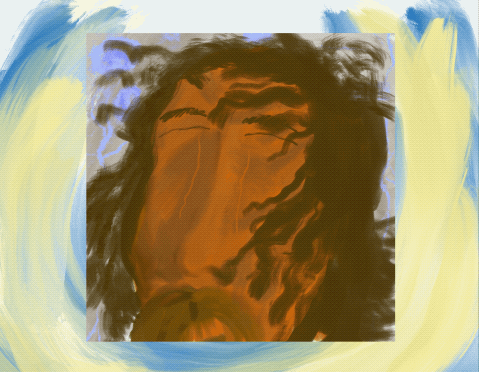
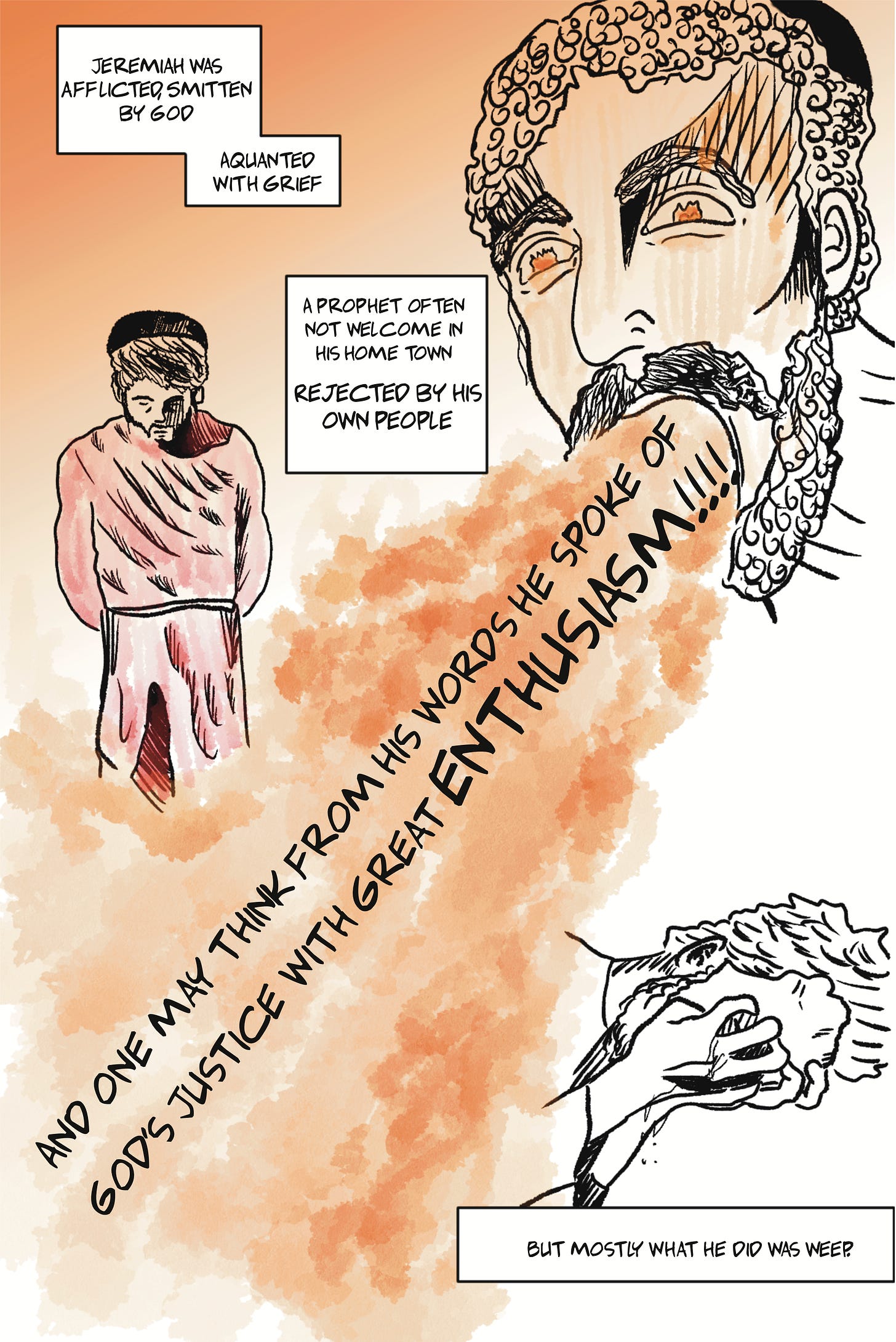
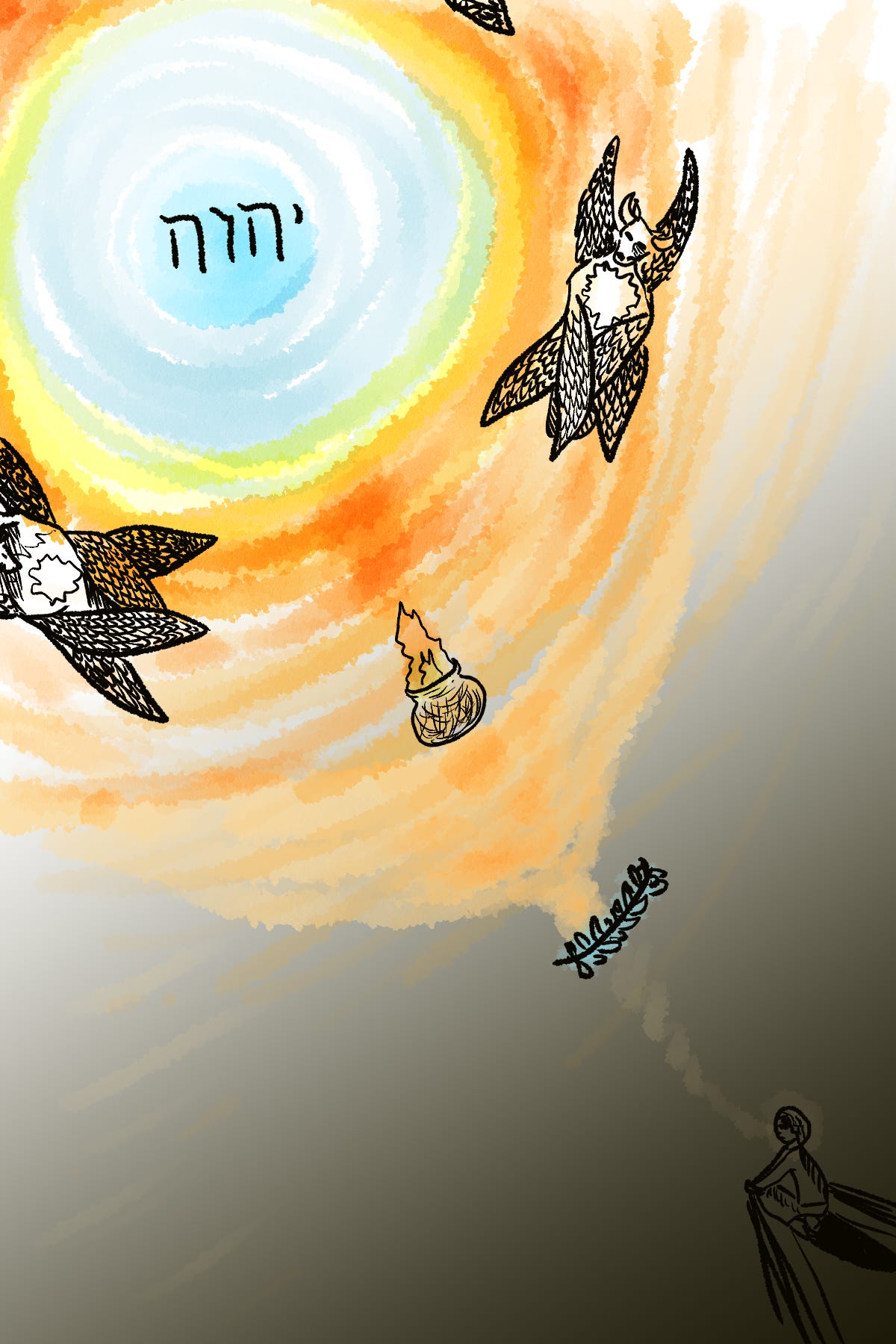
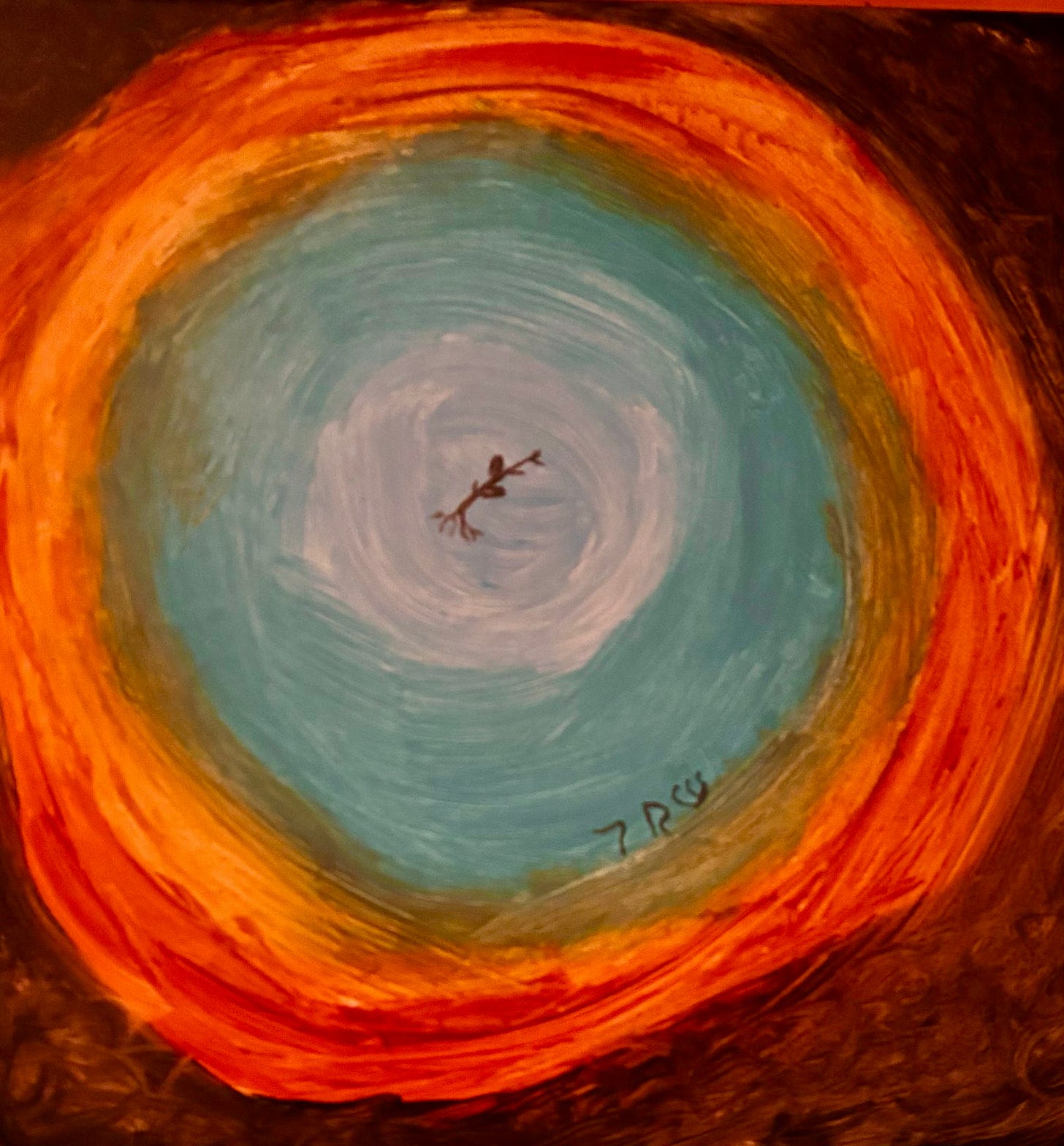
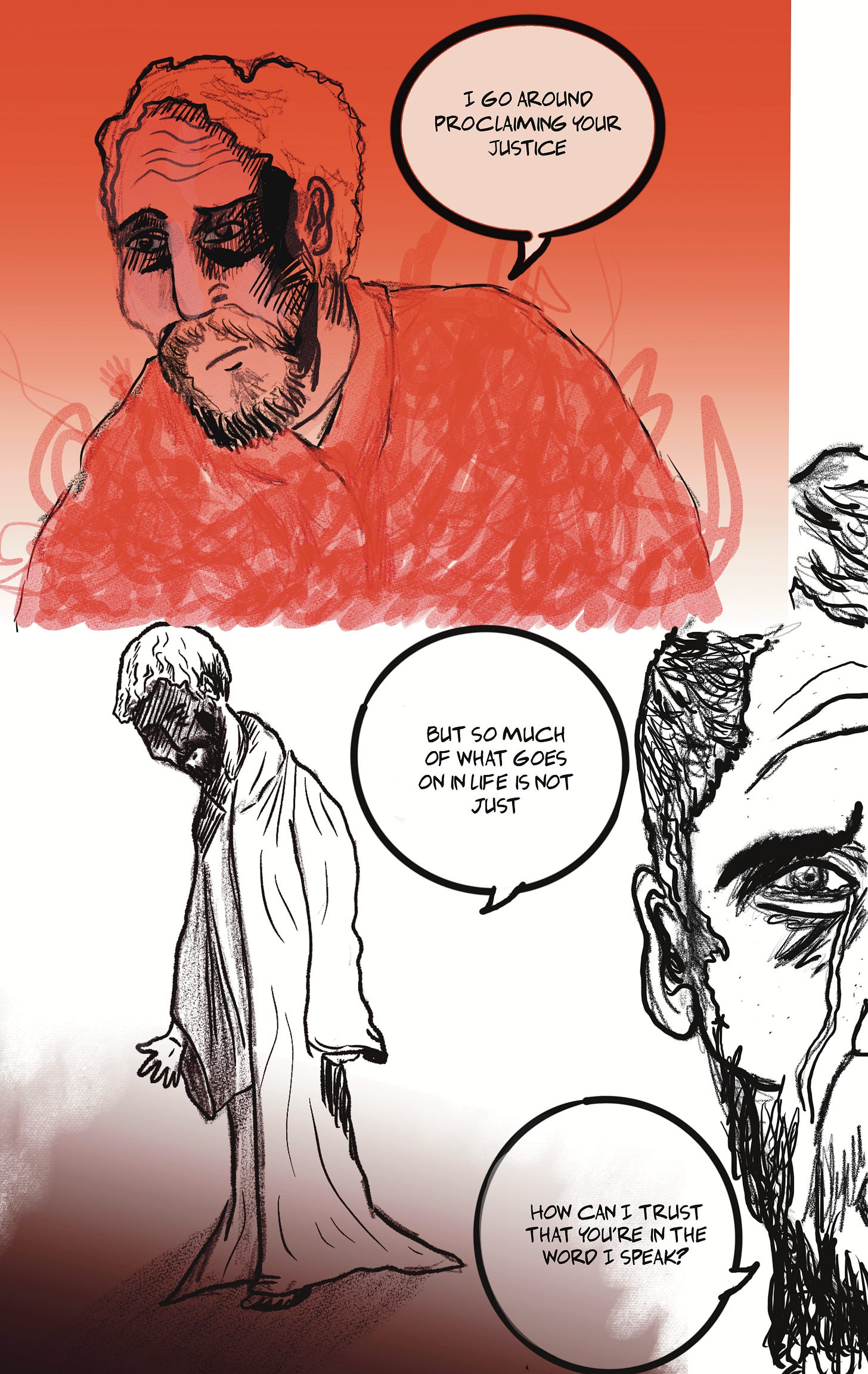
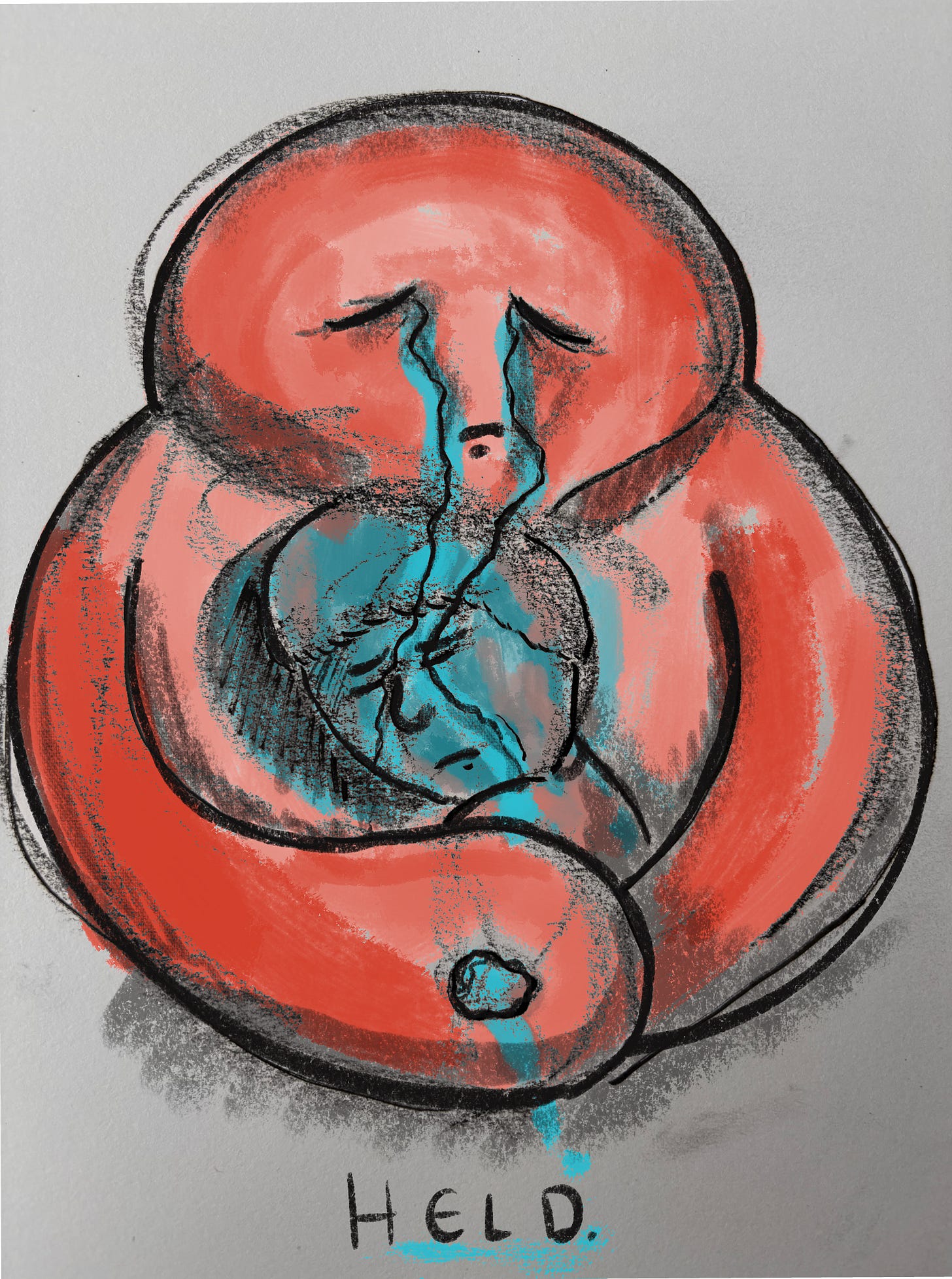
This is one the most important messages for the Christian walk and for society today.